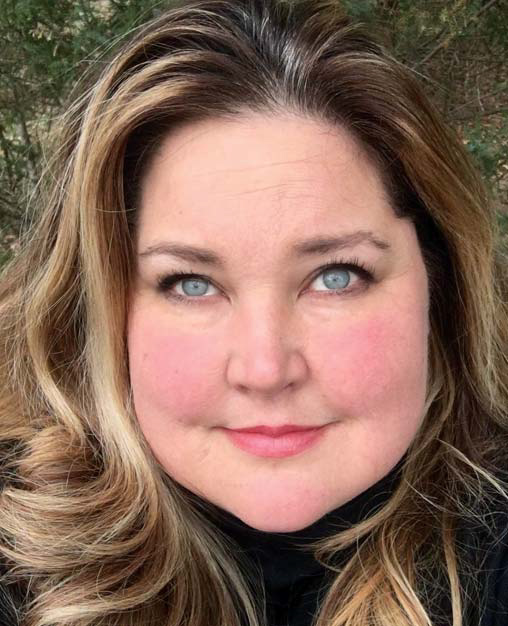Spanish-language videos help dairy farms prevent COVID-19 spread
MSU Extension team responds to crisis in Michigan

As COVID-19 hit Michigan dairy farms, a team of Michigan State University (MSU) researchers and outreach specialists sprang in to action to help.
They formed a diverse team of experts from departments and colleges across campus who then assembled programming and information to distribute to farms across the state.
“MSU responded rapidly, a definite challenge as we were still learning much about the virus, including important routes of exposure (e.g. inhalation, physical contact) and effective approaches for mitigation,” said Melissa Millerick-May, an assistant professor of medicine at MSU.
MSU Extension Educator Paola Bacigalupo Sanguesa, also on the MSU Extension COVID-19 response team with Millerick-May, recognized the need to provide information and guidelines to farm employees whose first language is Spanish. She worked with Millerick-May to write and produce a series of six informational videos in Spanish related to preventing the spread of COVID-19 on dairy farms. The videos were posted on the MSU Extension Dairy Team’s YouTube and distributed to farm managers across the state.
“We needed a way to disseminate information for Spanish speaking people in the agriculture industry,” Bacigalupo Sanguesa said. “Face-to-face training wasn’t an option, but we had a lot of information on coronavirus, and so we decided to produce Spanish-language videos.”
Video topics included:
- What is Covid-19?
- Preventing spread of Covid-19
- Minimizing spread in shared housing
- Facemask guidelines
- What do to if you think you have Covid-19
- Available resources for Covid-19.

“The videos featured topics relevant to dairy farm workers, who often live and work in enclosed environments in close proximity to others and may reside in shared housing or multi-generational living environments that could increase the risk of virus transmission,” Millerick-May said.
“The population of Spanish speaking people needed to be aware of what was happening with the pandemic and how to prevent infection,” Bacigalupo Sanguesa said. “They are a vital part of the dairy industry in the state.”
Millerick-May, who has worked as a toxicologist, industrial hygienist and epidemiologist in both the automotive industry and academia, served as the health expert to ensure Bacigalupo Sanguesa’s video scripts were up-to-date with the latest information on the virus.
When Bacigalupo Sanguesa approached the response team about doing the videos, Millerick-May immediately recognized the need and jumped on board.
“Our goal was to communicate meaningful and readily-implementable meaningful mitigation strategies.,” Millerick-May said. “It’s incumbent upon educators to provide accurate and relatable health and safety information in the language workers readily understand and in a format in which individuals most readily absorb that information.
“It is not reasonable to expect non-native speakers to effectively synthesize complex scientific information presented in an alternate language. For Paola to come up with idea and take the initiative to quickly develop and produce the videos was absolutely outstanding.”
MSU Extension distributed links to the videos through its dairy newsletter that is sent to the statewide to producers. Bacigalupo Sanguesa said she enjoyed making the videos and was excited to see the finished product, although online interaction is not her preferred method of communicating.
“I would much rather work with people face-to-face, but during this period where we are not allowed to do that, I will continue to make these videos and get the information out any way I can,” she said.
MSU teams up to tackle COVID
The Spanish-language COVID-19 videos were just one of many programs the MSU coronavirus response team developed to help the agricultural community.
.JPG?language_id=1)
Millerick-May credits Marilyn Thelen, associate director of the Agriculture and Agribusiness Institute, for assembling and leading the team.
“This all happened very quickly. COVID-19 hit, and within a matter of days we were developing and publishing resources to support the ag community and were concurrently working on the development of a USDA Rapid Response grant with an aim to support agricultural operations develop and implement meaningful pandemic preparedness plans that include effective mitigation strategies,” Millerick-May said.
MSU prides itself on its ability to react quickly to crises across the state and the team’s ability to be nimble and responsive impressed Bacigalupo Sanguesa.
“I think the lesson learned by everyone during this time is that we have to adapt quickly,” she said. “People are relying more and more on technology, and we have to make sure we embrace all the technologies and adapt to our audience.”
MSU Extension has expanded its e-learning offerings to include employee training programs, with the hopes of eventually creating an online farm employee university.
The ability to effectively respond to emerging challenges is partly credited to its wide range of experts who are willing to collaborate on various projects.
“We are very fortunate to have such depth of expertise at MSU,” Millerick-May said. “We have an arsenal of specialists that can help tackle these types of crises from every angle, and leaders who quickly recognize a need and pull teams together to be able to quickly provide knowledge and meaningful resources to the agriculture community.”



 Print
Print Email
Email





